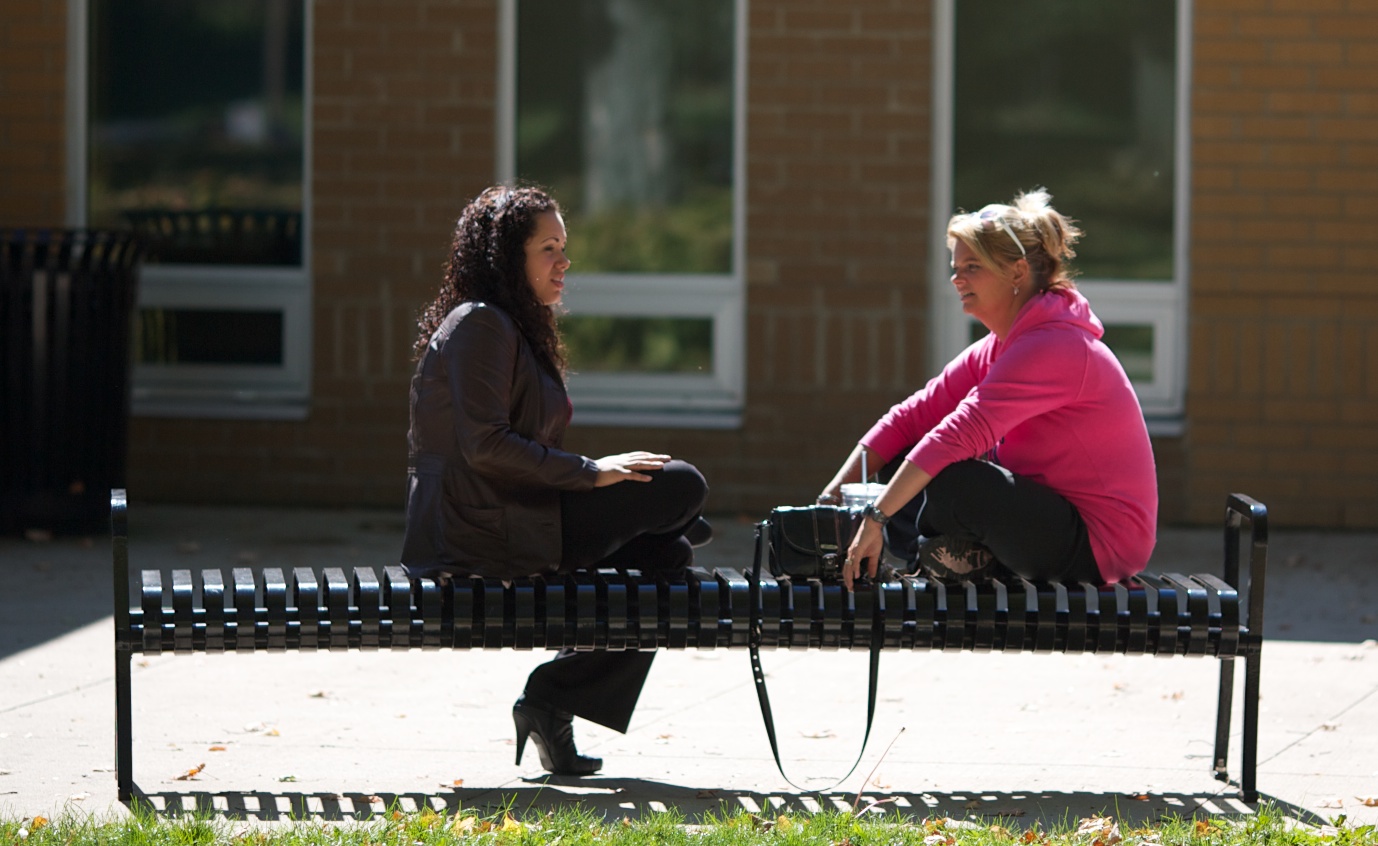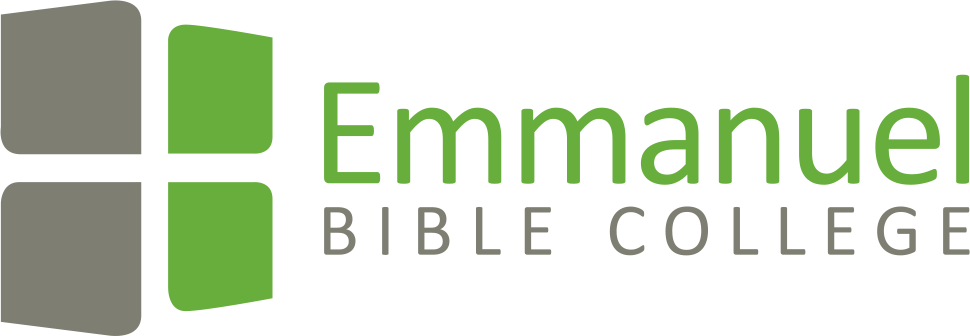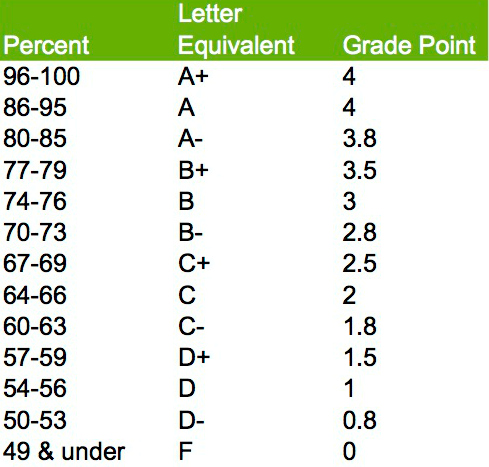Educational Philosophy
We value the development of character, knowledge and skill necessary to become effective disciples and leaders of the faith in the church and in the world. At Emmanuel, we have organized ourselves according to the belief that true disciples are those trained to serve with their heads (knowing), hearts (being) and hands (doing).

In pursuit of this form of education, Emmanuel is making the following commitments:
Integration of Heart and Mind
An Emmanuel education will tie together spiritual, personal, and vocational growth in a way that prepares committed disciples who are ready to make a difference in their world. All of our courses and
programs will integrate knowing, being, and doing.
Genuine Christian Community
We will do this in the context of a caring community in which everyone is challenged to live in service for each other. We believe that each person is made in the image of God with unique gifts and needs, and that each is of value.
Challenging and Caring Student Experience
Students at Emmanuel will be challenged to explore and understand themselves fully. They will be supported in the exploration by a campus committed to helping them achieve educational,
vocational, and personal goals.
Commitment to Innovation that Reflects Need
It’s not good enough to simply copy what others are doing or what’s been done in the past. Emmanuel will be active in creating and offering an education that meets changing needs and that will seek to serve those not currently being served. We will work through partnerships with like- minded ministries to ensure that our programs are relevant to what’s actually happening in the world.
Global-Mindedness and Missional Thinking
Emmanuel exists to play its part in the great commission of the Church. Our campus will continually deepen its commitment to outreach and to cross-cultural and global ministry, and develop its people – staff and student alike – to share this outlook.
Love of the Local Church
Emmanuel will be known as a place in which the local church, in all in its manifestations, is loved. The local church will be a place where all of Emmanuel’s people participate and serve. Emmanuel will be a centre in which emphasis is given to assisting the local church to understand and carry out its mission.
Ministry Training Programs
Bible and Theology courses
A Major
General Studies
General arts courses that expose the student to broad liberal arts learning
Professional Studies
Courses that provide skills in one or two areas of ministry.
Field Education
Practical placements, Internships, and Cooperative Education which are mentored, evaluated, learning-by- practicing ministry experiences, all within an ethos of spiritual and personal formation.
Emmanuel offers undergraduate or bachelor’s-level ministry training, in contrast to seminaries that offer graduate or master’s- level training following a university degree. We believe this model of training to be optimal, standing partway between seminaries on one hand and schools of ministry on the other.
The interaction of these four components of a program is change-inducing in a student’s life, especially when combined with all the additional learning opportunities campus life at Emmanuel affords.
Learning, doing ministry, and then reflecting on the results is known as praxis, and is the most effective type of learning. That is why Emmanuel’s program expects students to participate in field placements throughout their training. Emmanuel graduates find ready admission to excellent seminaries, other Christian graduate schools and universities for further training.
Both undergraduate and graduate studies and the accompanying years of ministry praxis reinforce one another to prepare the student professionally for a lifetime of service. Emmanuel commends this strategy of training to prospective students (and to churches/ companies/agencies interested in training Christian workers) with confidence in its proven effectiveness.
Pre-Professional Education
Christian men and women serving in the professions greatly extend God’s care and influence throughout the world. Entry to some non-church professions is through a professional graduate degree; to others through a community college diploma or certificate.
Emmanuel graduates usually receive very good transfer credit to universities. A three-year degree recipient may be granted up to or a little more than one-and-a-half years of transfer. Some transfer may be provided to community college programs depending on the student’s specialization and the policies of individual colleges. Transferring students have all the benefits of biblical, theological, professional and general arts studies so that they are well positioned to integrate faith with subsequent professional studies. This added strength makes Christian professionals especially effective servants of Christ in a world that is unaware of its deep need for Him.
Students planning studies at both Bible College and either university or community college are advised to complete their Bible College studies first in order to be better prepared and to streamline transfer of credit.
Emmanuel’s one-year programs such as MountainTop provide a good overview of the Bible College experience. Many pre- professional students choose this option, realizing that at least one year of personal growth at Bible College is too valuable to miss.
Christian Education for Life
Some Bible College students enroll to receive biblical and liberal arts education as their last planned formal education experience. With this training they enter the workplace, finding jobs that suit their interests, abilities, and aspirations. At times the employers provide special on-the-job training or even training for advancement. Such people have a worldview and skill sets that provide them with background to be good thinkers, capable of significant involvement in home, community and church settings. In short, Emmanuel provides Bible-based liberal arts education of one to three years’ duration, enabling students to develop personally in preparation for life and the workplace.
Degree Completion and Retraining
The college works supportively with people who are returning
to school, giving as generously as possible appropriate credit transfer to students who have previous post-secondary education. We are willing to do consultation and documentation for those interested in retraining with a ministry focus. In a society in which second and even third careers are common, Emmanuel is uniquely positioned to assist in this re-focusing and retraining for ministry.
8:1 Student to faculty ratio
and our faculty are always accessible to students!
Meet our Staff & FacultyCourses & Programs
Our programs and courses are designed to provide emphasis on active discipleship and to generate a passion for outreach and global mission. Students at Emmanuel experience steady growth in their spiritual development and maturity.
Programs
There are reasons to attend, and options provided, for every kind of student – from one seeking a professional career to the occasional learner of any age with a desire to study a special topic.
Courses
Our courses are divided into three divisions: Bible & Theology, General Studies and Professional Studies.
Field Education, Internships & Co-ops
Practical experience is a vital component of your education. When learning by practice, evaluation and mentoring are combined they create a highly effective learning environment that go beyond the classroom.
Distance Education
Distance, family, work and time commitments prevent some people from attending classes on campus. Distance Education (DE) provides an opportunity for these students to pursue accredited courses at post-secondary level.
Academic Policies
Important Dates
FALL 2023
September 4 – Residence Move-In (Labour Day)
September 4–7 – Student Orientation
September 11 – Classes Begin
October 9 – Thanksgiving (no classes)
October 23–27 – Reading Week
December 11 – Last Day of Classes
December 12-15 – Final Exams
WINTER 2024
January 4 – Student Orientation
January 5 – Classes Begin
February 19 – Family Day
February 19–23 – Reading Week
March 29 – Good Friday (no classes)
April 5 – Last Day of Classes
April 8-12 – Final Examinations
TBD – Graduation

